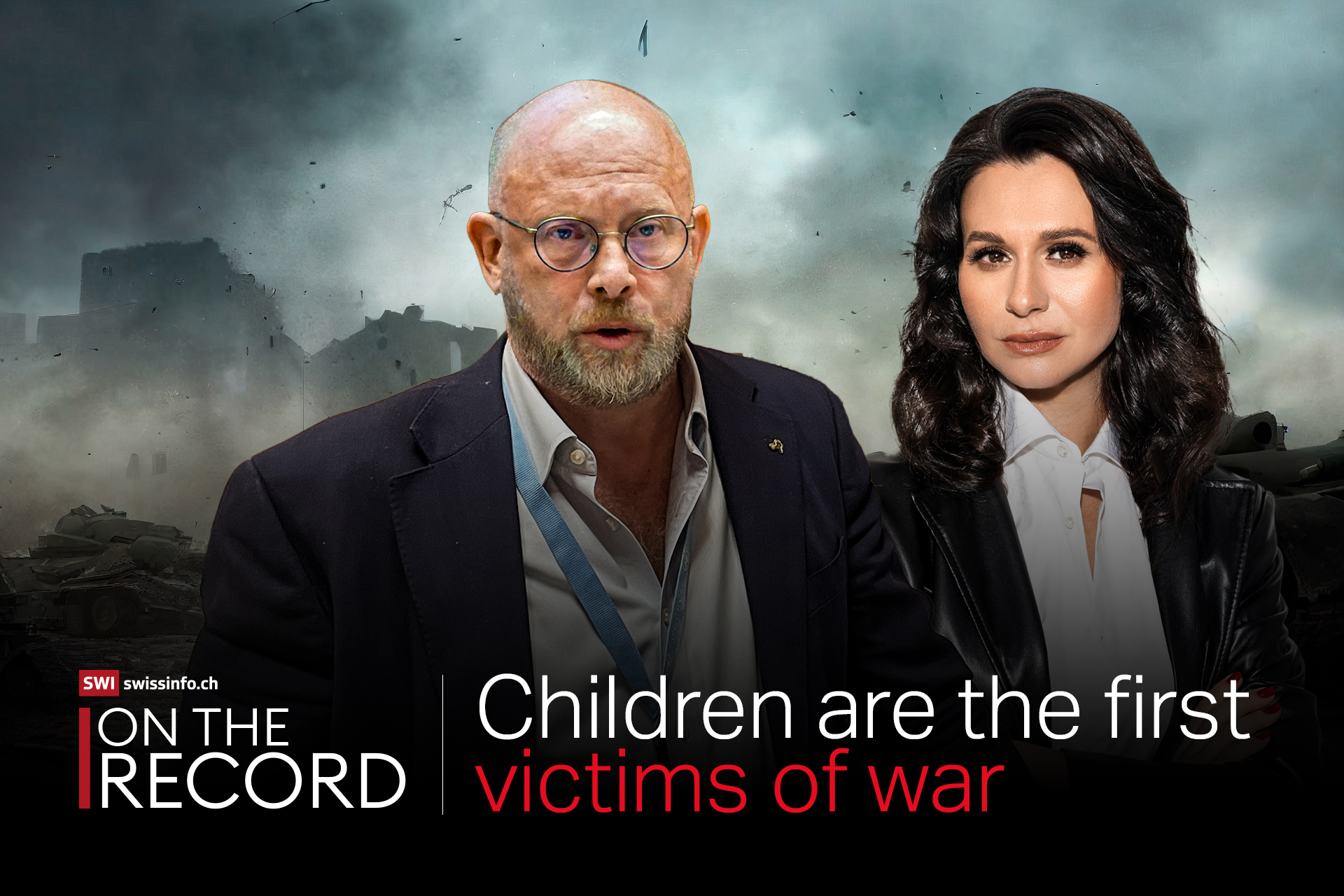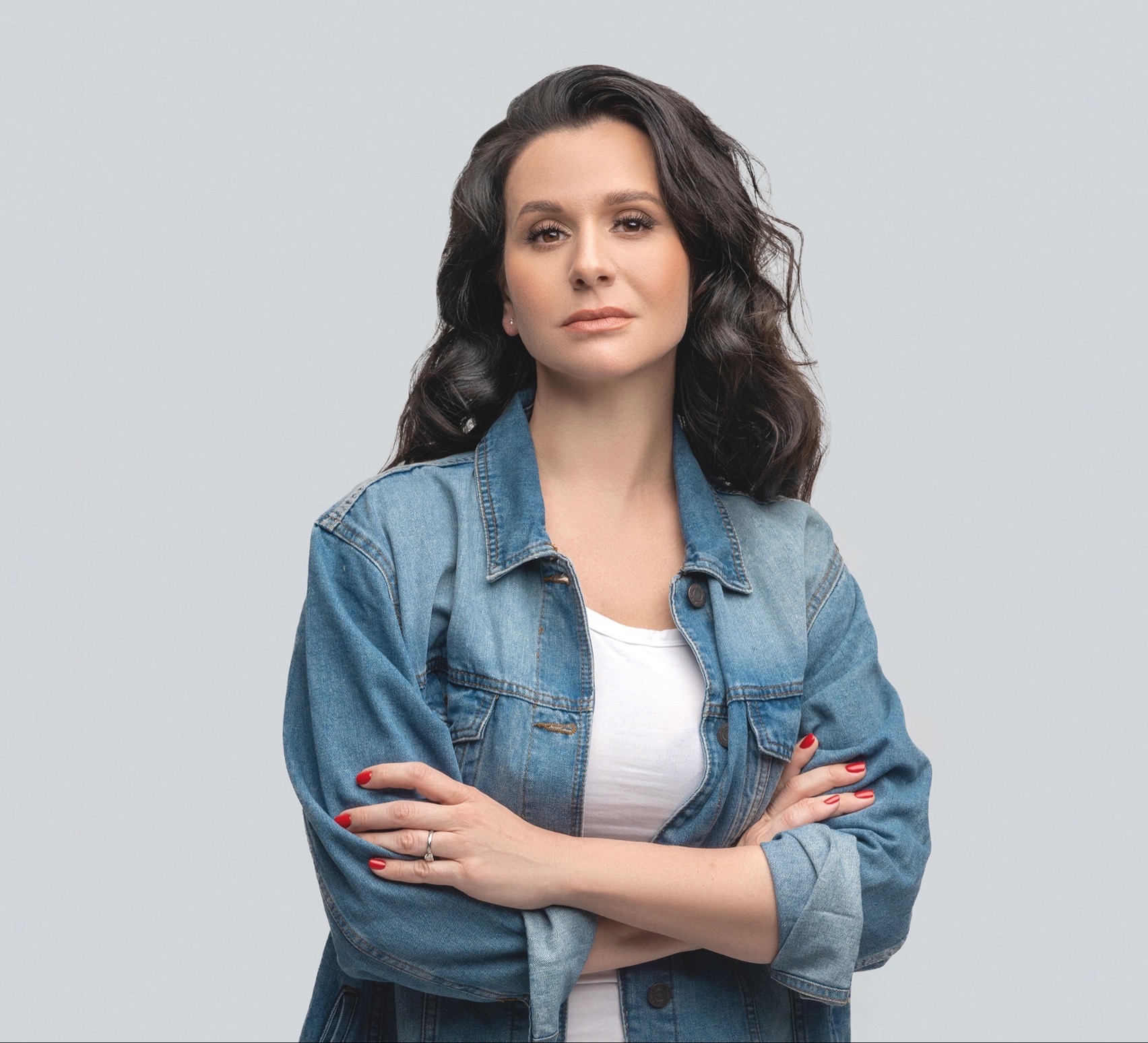
Sanctioned Russians in Geneva: who are they and why can they enter Switzerland?

A Russian parliamentary delegation is attending a conference in Geneva despite Western sanctions and the delegation’s open support for the war in Ukraine. Members of the Russian opposition say the delegation should not have been allowed to attend.
A Russian parliamentary delegation led by Valentina Matviyenko, the Chair of the Federation Council – the upper house of Russia’s Federal Assembly – is in Geneva to attend the Interparliamentary Union’s Sixth World Conference of Speakers of Parliament and the 15th Summit of Women Speakers of Parliament, taking place this week. Part of the Russian delegation is under European Union (EU) and Swiss sanctions and actively supports Russia’s war in Ukraine.
Switzerland generally prohibits people subject to sanctions from entering or transiting through the country under its ordinance on measures related to the situation in Ukraine. However, the State Secretariat for Migration (SEM) and the foreign ministry may grant exemptions – especially if the person in question is attending an international conference.
The foreign ministry generally does not comment on specific cases but told news agency Keystone-SDA ahead of the IPU events that sanctions may be waived for delegations attending international conferences in Geneva. The two conferences are taking place from July 28 to 31.
Speaking to Swiss Public Broadcaster, RTSExternal link, IPU Secretary General Martin Chungong said that bilateral meetings had not yet been confirmed but that the IPU is seeking to bring Russians and Ukrainians together at its conference.
He specifically mentioned the situation of Ukrainian children taken to Russia during the war as a possible topic for discussion. “Both sides agree that efforts must be made to reunite these children with their families,” Chungong said.

More
Child victims in Ukraine – can the trauma be cured?
‘Switzerland turns a blind eye’
However, critics of Putin’s government say Switzerland and the IPU are legitimising Russia’s war against Ukraine by allowing the delegation to visit Geneva.
“This is exactly what the Kremlin dreams of: the normalisation of Putin’s criminal regime,” wrote opposition blogger Rustem AdagamovExternal link about the Russian delegation’s Swiss visit, arguing it should not have been offered “Geneva’s stage”. Adagamov, who is currently living in Prague, has been designated a “foreign agent” by the Russian government.

Russian opposition figure Mikhail Khodorkovsky told Swissinfo that “the Putin regime must not be allowed to normalise a full-scale war in Europe. In my view, meetings with high-ranking representatives of the regime are only acceptable if they concern negotiations to end the war.” Khodorkovsky says he supports “cultural, educational, and personal exchanges with Russian society” but that “symbolic receptions of regime figures only play into Putin’s hands”.
The Anti-Corruption Foundation (FBK),External link a platform run by supporters of deceased Russian opposition politician Alexei Navalny, also reported on the appearance of the Russian delegation at the conference, which includes not only Matviyenko but also other highly-placed officials in Putin’s government such as State Duma Deputy Speaker Pyotr Tolstoy and party leader Leonid Slutsky.
“All three are under EU sanctionsExternal link. And what does Europe do? Switzerland turns a blind eye and lets these criminals and warmongers onto its territory. Italy approves the flight of their aircraft through its airspace,” the FBK wrote.
Andrei Loshak, a Russian journalist External linkand documentary filmmaker in exile in Paris who has also been designated a “foreign agent” by Russian authorities, says that a friend of his joined a small protest in Geneva against the parliamentary delegation and that the issue has not received much attention in Switzerland.

“I honestly don’t know what’s worse: that Switzerland is welcoming these cannibals or that no one cares – including the many Ukrainian refugees living in Switzerland,” Loshak said.
Diplomacy or normalisation?
On July 28, Matviyenko arrived in Switzerland and delivered a speech at the IPU’s Summit of Women Speakers in support of her country’s military aggression against Ukraine.
Matviyenko was accompanied by nine other top-level Russian government officials and parliamentarians. At least five of them are under Western sanctions.
The spokesperson for the Ukrainian Ministry of Foreign Affairs, Heorhii Tykhyi, criticised Matviyenko’s participation in Geneva. According to TykhyiExternal link, Matviyenko “belongs on trial [in The Hague], not at international conferences,” and her admission to Geneva “is disgraceful and should never have happened.”
Matvienko's place is in the dock, not at international conferences. Her admission to Geneva is disgraceful and should never have happened.
— Heorhii Tykhyi (@SpoxUkraineMFA) July 28, 2025External link
The Genocidal Matvienko bears personal responsibility for the crime of aggression and all subsequent atrocities after publicly endorsing the…
Switzerland aligns its sanctions regimeExternal link with that of the EU, even though it is not an EU member. For example, Brussels sanctioned Matviyenko, along with other Russian officials, already in 2014, a move Switzerland later followed.
This is not Matviyenko’s first visit to Switzerland since being placed on the country’s sanctions list; in 2016, she was also granted a visa to attend an IPU session. At the time, the Russian embassy in Bern requested entry permits for Matviyenko and Slutsky, both of which were granted.
IPU Secretary General Martin Chungong External linktold RTS ahead of this week’s conference that the Russian war in Ukraine is not on the agenda but that a debate is planned about parliamentary cooperation for peace and justice.

As a neutral nation, Switzerland has a long tradition of acting as a discreet intermediary, offering its support to countries in conflict through what is known as “good offices”, where it mediates on behalf of two opposing parties. Geneva, a longstanding hub for international negotiations, is part of that tradition and is home to international organisations such as the United Nations, the IPU, the ICRC and hundreds of NGOs.
Founded in 1889, the Inter-Parliamentary UnionExternal link brings together national parliaments from around the world to foster dialogue and cooperation.
Who are the Russian delegates?
Valentina Matviyenko
Valentina Matviyenko is under sanctions from 27 countries, including the US, the United Kingdom, and Canada, following Russia’s annexation of Crimea. Her foreign assets – including bank accounts – have been frozen. She approved military operations in Ukraine in both 2014 and 2022, as well as in Syria in 2015, casting decisive votes in the Federation Council.
Matviyenko’s close ties with Vladimir Putin date back to their time in St Petersburg. She is also a member of Russia’s Security Council, solidifying her position as a key Putin ally. Like Putin, she has expressed regret over the collapse of the Soviet Union.
According to Kremlin sources cited by the Dossier CenterExternal link, Matviyenko is regarded as one of the most powerful and experienced figures in Russian politics – and the leading representative of the so-called “women’s wing” of the ruling United Russia party.
As Speaker of the Federation Council, Matviyenko supported a series of controversial laws: the ban on American citizens adopting Russian orphans, the “gay propaganda” law, the law on “protecting religious feelings,” and the foreign agents law.
In addition to luxury real estate in Russia, the Anti-Corruption Foundation (FBK) has identified a villa owned by the Matviyenko family in Italy.
Leonid Slutsky
Leonid Slutsky, chairman of the Liberal Democratic Party of Russia (LDPR), is under sanctions imposed by the EU, US, Canada, the United Kingdom, and Switzerland. He is known for his support of the annexation of Crimea and Russia’s military aggression in Ukraine.
Slutsky is considered one of Russia’s key figures in cultivating foreign political contacts. He regularly organised trips to occupied Crimea for Western politicians, often from the far-right, aiming to legitimise the annexation and amplify Kremlin narratives in Europe.
In 2011, leaked photos of his daughter revealed that the Slutsky family frequently vacationed at a luxury villa in Turkey, and one of his daughters was attending a Swiss private school with annual tuition fees of $88,000 (CHF70,800).
In 2018, four female journalists accused Slutsky of sexual harassment, including unwanted touching. Once again, the Duma’s ethics committee cleared him, claiming it found no evidence of “inappropriate conduct.”
According to the investigative platform Dossier CenterExternal link, Slutsky financed the work of a GRU (Russia’s foreign military intelligence agency) psychological warfare officer involved in attempts to interfere in Europe’s domestic political processes.
What is your opinion? Join the debate:
Edited by Balz Rigendinger/vdv

More
Our newsletter on geopolitics

In compliance with the JTI standards
More: SWI swissinfo.ch certified by the Journalism Trust Initiative






























You can find an overview of ongoing debates with our journalists here . Please join us!
If you want to start a conversation about a topic raised in this article or want to report factual errors, email us at english@swissinfo.ch.